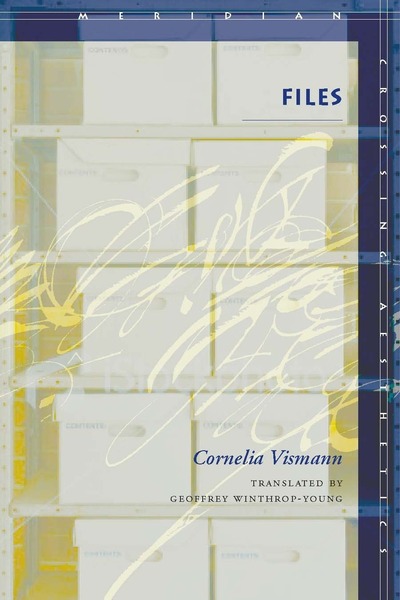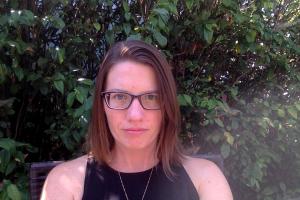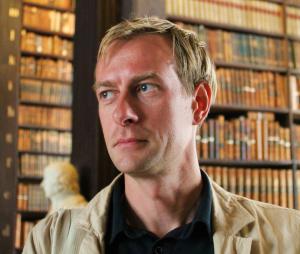 Habitual New Media (COLT 607)
Habitual New Media (COLT 607)
This term Professor Colin Koopman (Philosophy) and Wendy Hui Kyong Chun (2014- 15 Wayne Morse Chair of Law and Politics) have been teaching the seminar course Habitual New Media in the Department of Comparative Literature. This is course is intended to provide graduate students from a range of disciplines with an introduction to, and deeper engagement with, some of the major theoretical approaches to new media as an object of critical inquiry. In this course students survey emerging themes of inquiry gaining importance across a range of contemporary disciplinary formations including not only new media studies, but also science and technology studies, the history and philosophy of technology and science, and political philosophy and social theory.
Bonnie Sheehey (PhD candidate in Philosophy), and Professor Koopman, have both generously agreed to share their thoughts on the new media seminar from the perspectives of a student and as a teacher of the course (respectively).
Bonnie Sheehey
PhD Candidate
Department of Philosophy
In COLT 607, “Habitual New Media,” professors Wendy Chun and Colin Koopman uniquely created a space for interdisciplinary inquiry into the ways in which new media invariably shape our present modes of habituation and the historical formation of our present selves. By weaving together a dynamic narrative through a critical engagement with theories of new media, the class was able to provide students from multiple disciplines with the opportunity to reflect on questions of temporality, sociality, and the possibility of political and ethical transformation in our networked spaces.
 The course nicely culminated in the interdisciplinary symposium “Living Data: Inhabiting New Media” by bringing together a set of scholars interested in the question of living data. The class was especially significant insofar as it afforded me the chance to engage and converse with students of diverse disciplinary backgrounds for whom the questions and concerns of new media are vital, live, and timely.
The course nicely culminated in the interdisciplinary symposium “Living Data: Inhabiting New Media” by bringing together a set of scholars interested in the question of living data. The class was especially significant insofar as it afforded me the chance to engage and converse with students of diverse disciplinary backgrounds for whom the questions and concerns of new media are vital, live, and timely.
Colin Koopman
Associate Professor
Department of Philosophy
Some of the main concepts we have been focusing on include habits, conducts, and archives. These have been methodological entry points for us in exploring the ‘new’ domains as ‘new media’ and ‘big data’. My view is that information cultures and media ecologies are not only interesting in their own right, but they are also interesting sites for study because they challenge many of our inherited expectations about what is involved in seeking to understand critique these sites. For instance, what familiar habits of ‘reading’ are challenged when the texts one is engaging in are encoded digital files? What assumptions about ‘interpretation’ are disrupted when the texts one is reading refuse to sit still and present themselves as fixed and stable objects? What scholarly premises are pushed around when it begins to become clear that the work of critical inquiry can no longer proceed solely on the basis of interpretation? All of these questions are provoked by the very attempt to take seriously the presence of ‘media’ — a presence that is insisted upon by the attention we give to ‘new media’ even if these turn out to be indeed very ‘old media’ too.

Files, Cornelia Vismann
Probably my own favorite readings in the course have been my co-teacher Wendy Chun’s book “Habitual New Media” (but we read the manuscript for it, as the book is still to be published) (you can hear a lecture by Wendy Chun about Habitual New Media here) and books coming out of German Media Archaeology, including Markus Krajewski’s “Paper Machines” and Cornelia Vismann’s “Files”.
 Interested in taking an NMCC-affiliated course? Classes for spring 2015 are currently posted on the NMCC website. Check them out here!
Interested in taking an NMCC-affiliated course? Classes for spring 2015 are currently posted on the NMCC website. Check them out here!


